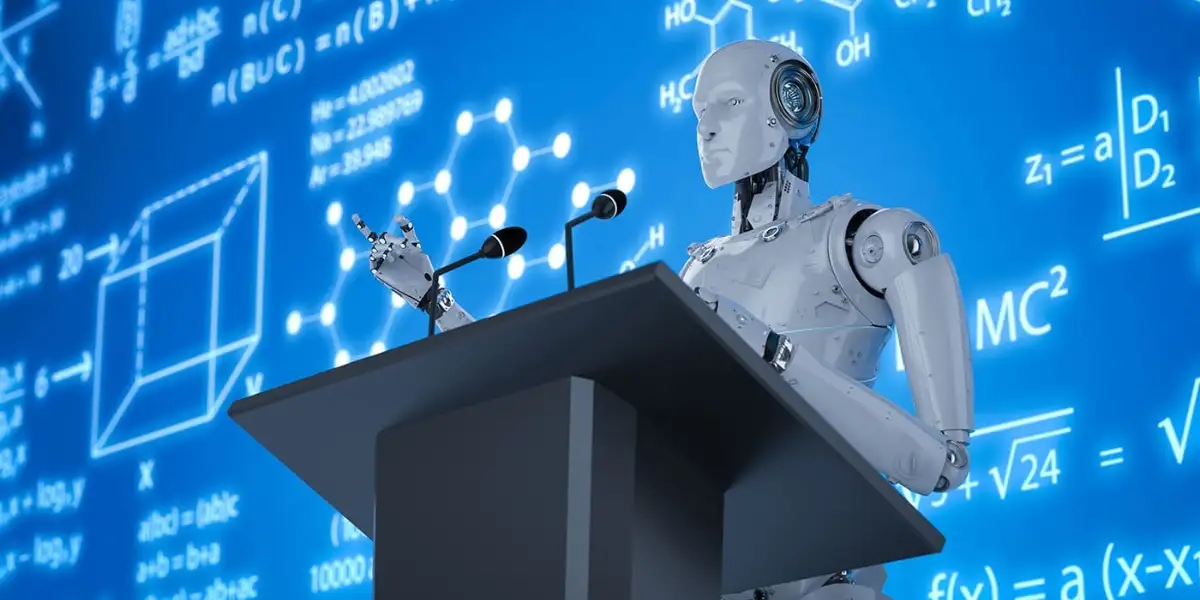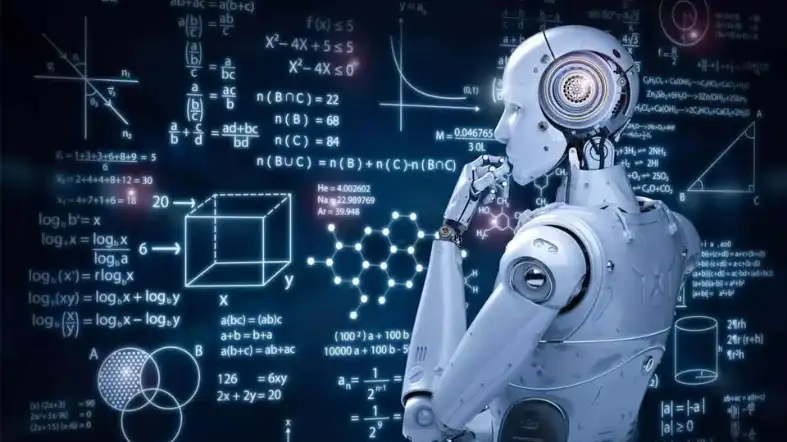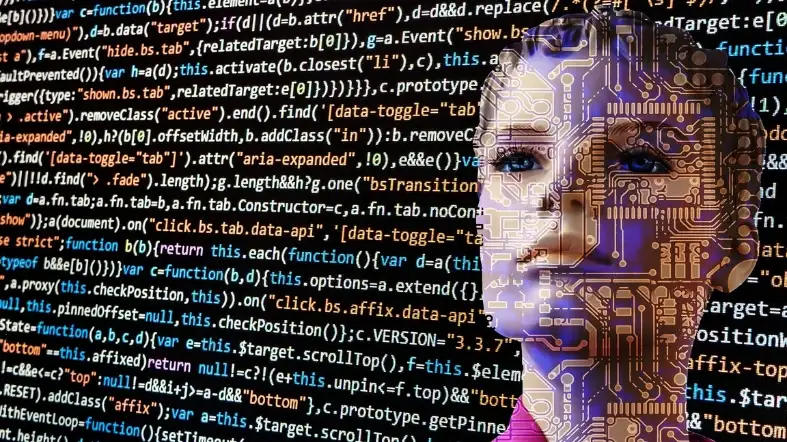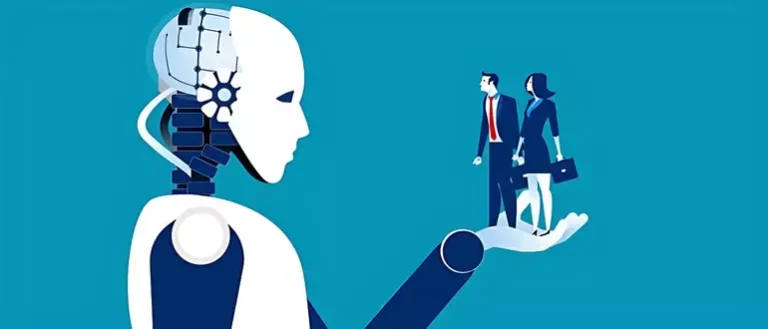Artificial intelligence (AI) is permeating every part of our lives, including education, in an expanding number of ways.
Some are now debating whether AI will replace human professors as a result of developments in machine learning and natural language processing.
While there are definitely numerous advantages to AI technology, the idea of machines replacing teachers raises significant concerns about the direction of education.
We will examine the likelihood that AI will replace teachers in this blog post and go over the repercussions of such a change.

Will Ai Replace Professors?
No, AI cannot completely replace professors as their roles involve personal interaction and mentorship, emotional intelligence, and empathy, which are essential for creating a holistic learning environment.
While AI can assist professors in certain tasks, it cannot replace the human element of teaching.
How Will Ai Impact The Job Market For Professors?
AI on the Job Market
According to a Brookings Institution report[1], AI will likely impact white-collar jobs, including better-paid professionals with bachelor’s degrees, in the near future.
Professors, who often hold advanced degrees, fall into this category, so it is reasonable to expect that AI will affect their job market in some way.
While AI will not necessarily replace professors entirely, it is expected to change the nature of their work.
Changes in Work Processes
AI has the potential to change how professors work by automating some of their tasks.
For example, grading can be done more efficiently and accurately with the use of AI-powered systems.
In addition, AI can help professors tailor their teaching materials to the individual learning styles of their students.
This personalized approach to teaching can improve student engagement and performance.
Changes in Job Roles
As AI becomes more prevalent in education, the role of the professor may evolve to include more work in data analysis and program development.
Professors may need to become proficient in using AI tools to stay competitive in the job market.
In addition, professors may be required to teach courses on AI or integrate AI topics into their existing courses.
Changes in Hiring Practices
As AI continues to make inroads into the education sector, universities may hire professors with AI-related skills or experience.
Job postings may require candidates to have experience in using AI tools or knowledge of AI theory.
Professors who can demonstrate proficiency in AI will have a competitive advantage over those who do not.
What Skills Will Professors Need To Use Ai In The Classroom Effectively?

Familiarity with AI technology
Professors must have a solid understanding of AI’s capabilities in order to employ it effectively in the classroom.
Understanding the various categories of AI applications, such as machine learning, natural language processing, and computer vision, is necessary for this.
Professors should be knowledgeable about AI’s potential advantages and disadvantages as well as the moral and societal ramifications of its application.
Identifying areas where AI can be useful
Once professors have a basic understanding of AI technology, they need to identify the areas where it can be useful in the classroom.
For instance, AI can be used to provide personalized learning experiences, identify areas where students are struggling, and offer real-time feedback on assignments.
Professors should also consider the administrative tasks that can be automated using AI, such as grading, scheduling, and attendance tracking.
Implementing AI tools and systems
After identifying the areas where AI can be useful, professors need to learn how to implement AI tools and systems effectively.
This involves selecting the right AI solutions, setting up the necessary hardware and software, and integrating them into existing systems.
Professors also need to ensure that the AI systems they use are secure, reliable, and compliant with data privacy regulations.
Data analysis and interpretation
Professors must be adept at data analysis and interpretation in order to draw insights from the massive amounts of data generated by AI systems and come to well-informed conclusions.
The collection, cleaning, and analysis of data using AI tools, such as machine learning algorithms, is a skill that professors must learn.
In order to improve student outcomes, they need also be able to comprehend the findings of data analysis.
Collaboration and communication
AI technology is not a replacement for human expertise, and professors need to be skilled in collaboration and communication to use AI effectively in the classroom.
They need to work closely with other educators, administrators, and IT professionals to ensure that AI tools and systems are implemented correctly and used to their full potential.
Professors also need to communicate the benefits and limitations of AI technology to students and other stakeholders.
Continuous learning and adaptation
Finally, in order to stay up with the most recent advancements in AI technology, academics must be dedicated to lifelong learning and adaptation.
Since AI is a topic that is continually growing, teachers must keep up with the most recent methodologies, tools, and trends.
Additionally, they should be open to changing their techniques and procedures to include new AI tools and systems that improve student learning.
How Might Ai Change The Role Of Professors?

AI-powered Teaching Assistants
AI-powered teaching assistants are one of the most significant ways that AI could alter the function of academics.
These helpers could aid with duties like marking homework, responding to inquiries from students, and even facilitating discussions.
For instance, a teaching assistant powered by AI may review student essays and offer suggestions to help them write better.
This could free up instructors’ time so they can concentrate on other things like research, course planning, or one-on-one meetings with students.
Personalized Learning
Additionally, AI might give pupils a better-tailored educational experience.
Professors might adapt their instruction to each student’s unique requirements, skills, and interests with the aid of AI algorithms.
For instance, an AI-powered system may assess each student’s learning preferences and style in order to choose the most effective teaching strategy.
This might lead to more motivated students who are better able to comprehend and remember the information.
Data-Driven Decision Making
AI could also help professors make more informed decisions by analyzing data and providing insights.
For example, AI could help professors identify areas where students are struggling and adjust their teaching methods accordingly.
AI could also analyze data from previous courses to identify trends and make predictions about student performance.
This could help professors make more informed decisions about course design, assessment, and student support.
Automation of Administrative Tasks
Another way that AI could change the role of professors is by automating administrative tasks.
This could include tasks such as scheduling, record-keeping, and managing grades.
For example, an AI-powered system could automatically grade multiple-choice quizzes or exams, freeing up professors’ time for other tasks.
Collaborative Research
Professors and AI may be able to work together more successfully on research initiatives.
Professors could find possible research collaborators based on their areas of expertise and previous work with the aid of AI-powered technologies.
Data analysis, literature reviews, and even co-authoring research papers could all benefit from AI assistance.
New Learning Experiences
AI could potentially design brand-new educational opportunities that weren’t before possible.
For instance, AI-driven virtual reality simulations could enable students to experience scientific phenomena, explore historical locations, or hone skills in a secure setting.
This can give students a more interesting and immersive learning experience, which might aid in their comprehension and retention of the information.
FAQs
How Will AI Impact The Role Of Professors In Education?
AI-powered tools have the potential to allow professors to focus on more interactive and engaging teaching methods while leaving the technical aspects to the AI [2].
This could lead to more personalized and effective learning experiences for students.
What Are The Potential Benefits Of Using AI In Education?
According to a Harvard Business Review article, AI has the potential to enhance and collaborate with human intelligence, leading to greater productivity and the automation of routine work [3].
Additionally, AI can provide personalized learning experiences for students and assist in grading and assessment.
Are There Any Potential Drawbacks To Using AI In Education?
One potential drawback is the risk of overreliance on AI-powered tools, which could lead to students lacking critical thinking and creativity.
Additionally, AI can perpetuate existing biases and inequalities if not properly programmed and monitored.
How Can Educators Ensure That AI Is Used Effectively And Responsibly In Education?
It is important for educators to stay informed about AI developments and ensure that AI is used to enhance and augment human intelligence rather than replace it [3].
Proper programming and monitoring of AI tools are also crucial to avoid perpetuating existing biases and inequalities.
Will AI Make Education More Affordable And Accessible?
AI has the potential to make education more affordable and accessible by providing personalized learning experiences and reducing the need for physical classroom space [2].
However, it is important to ensure that access to AI-powered tools and education is not limited by socioeconomic status.
Conclusion
While it is undeniable that AI will have an effect on employment, it is unlikely that physicists will experience a material change as a result of the technology anytime soon.
To be competitive in the employment market, it’s crucial to keep up with industry advances and to learn new skills constantly.
Physicists can make sure they stay on the cutting edge of the field and are ready to seize any new chances by staying up to date with AI-related technologies.



